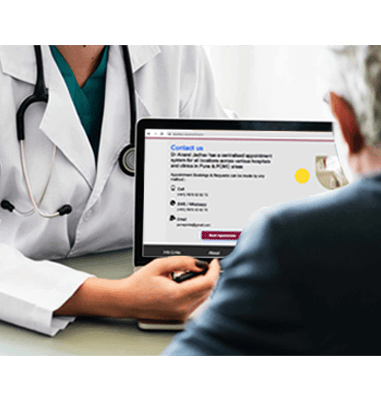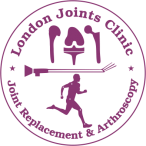Post-Surgery Instructions
POST-SURGERY INSTRUCTIONS
After completion of their surgery, the patients are shifted to the Operation Theatre (OT) Recovery Room . They may be provided supplemental oxygen if needed. Monitoring devices are used which provide the nursing staff with information about patient’s heart rate, blood pressure, respiratory rate, oxygen saturation levels and tracing of their heart rhythm.
Regular monitoring of all vital parameters is done by the recovery room staff.Patients may be held back in the recovery room for 1 to 2 hours depending upon the type of surgery performed, type of anaesthesia used and also the stability of their vital parameters.
Patients get shifted to their concerned ward after remaining stable in the
recovery room. They are escorted by their ward nurse during their shifting and transfer to their ward bed. Patient care is handed over by the recovery room staff to the ward nursing team with all concerned paperwork and clear communications about post-surgery plans.
Patients normally need to be kept nil by mouth (NBM) for minimum 3 hours after surgery under general anaesthesia. Then sips of water are allowed. Meanwhile intra-venous fluids may be given to maintain patient’s hydration status. If patients can tolerate oral fluids and have no complains of nausea or vomiting, then they may have tea after 3 to 4 hours post surgery. Soft diet can be resumed after 6 hours after surgery. All normal diet is resumed from next day.
Special efforts are taken by the anaesthesia team and Dr.Jadhav, in managing patient’s pain using a multi-modal approach. This may involve local wound infiltrations given by Dr.Jadhav during surgery, ultrasound guided nerve blocks either pre or post-surgery by the anaesthesia team and continuous infusions via epidural or local catheters.
Intra-venous painkillers are also given as prescribed to control patient’s post-surgery pain. Oral painkiller medications are started next day. Most patient need painkillers for first 2 to 3 days on a regular basis. Thereafter painkillers are taken as needed. Patients are also permitted to resume taking all their routine long-term medications from the next day. These could be medications for their hypertension, thyroid problem or diabetes.
Regular anti-platelet or anti-coagulant medications can also be started as usual. For all major surgeries including hip and knee replacements, daily subcutaneous anti-coagulant injections are prescribed until patient is discharged home.
The operated limb may be elevated over pillows or kept in a sling to reduce swelling and pain.
Ice packs are applied to the surgical site 4 to 5 times a day for 15 to 20 mins on each occasion.
Patients are allowed to mobilise, where possible, once their vitals are stable and they have fully recovered from their general anaesthesia. Those patients who have undergone surgery under spinal or epidural anaesthesia are kept in bed until next day morning. If their vitals are stable next morning, they are allowed to mobilise after temporarily stopping their epidural anaesthesia. Physiotherapist will help the patients in mobilising after their surgery.
Patients are also given appropriate doses of antibiotics for first 24 hours only.
All patients are encouraged to keep moving their ankle and toes and do static quadriceps exercises when lying in bed. They are also taught deep breathing exercises.
Patients who have undergone operations under local anaesthesia are allowed to go home after 4 hours provided their vitals are stable, they have no pain and have been freely mobile. Such patients are given oral pain killers and oral antibiotics as required for 2 to 3 days. Further follow-up visit is arranged after 1 to 2 weeks.
machinery or sign a legal document for the first 24 hours after their surgery as the effects of the sedative and/or the anaesthesia medications administered during the surgery, may last for the first 24 hours of the surgery.
Generally, all arthroscopic surgery patients can be discharged home next day.
The physiotherapy team sees them and instructs them in surgery specific / joint specific exercises. Some patients do need regular physiotherapy after their surgery. Home visits by a physiotherapist or OPD visits to the hospital’s physiotherapy department are planned prior to patient discharge. The compressive dressings of these arthroscopy patients are removed, and new
dressings applied prior to discharge. These dressing are left undisturbed until follow-up visit at 2 weeks mark.
Patient who have undergone major surgeries like joint replacements or complex fracture fixations need hospitalisation for 3 to 5 days depending upon the type of their surgery. Such patients are taught exercises in bed to avoid getting blood clots in their calves and trained to mobilise full / partial / non-weight bearing with a walker or elbow crutches as decided by Dr. Jadhav.
Patients who have undergone joint replacement surgeries of hip or knee are taught initially to get in and out of bed, stand by the bedside with support of a walker, start walking full weight bearing with help of a walker, start using
bedside or bathroom commode and learn to sit in a wide and comfortable chair that is minimum 18 inches or more in seat height. Their urinary catheter gets removed once they are able to walk to the bathroom themselves in a few days.
Their wounds get checked, and their dressings changed, prior to discharge. The new dressing is left undisturbed until their follow-up visit at 2 weeks mark.
Arthroplasty (Joint Replacement) patients do need regular physiotherapy after their surgery. Home visits by a physiotherapist or OPD visits to the hospital’s physiotherapy departments are planned prior to patient discharge.
Patients who have undergone major upper limb surgeries like shoulder or elbow replacement surgeries, shoulder fracture fixation, arthroscopic shoulder rotator cuff repair, arthroscopic shoulder stabilisation etc are discharged home next day after change of their dressings and appropriate physiotherapy sessions.
Physiotherapy remains an integral part of any patient’s optimal recovery process and must be done strictly as advised by Dr.Jadhav or a member his physiotherapy team.
Patients are given printed discharge summary at the time of their discharge from the hospital. They are explained the post-op medications and other instructions to be followed.
Patients are given a follow-up visit appointment at 2 weeks post-surgery. All wounds get seen and the sutures are removed where needed.Subsequent follow-up visits are advised at 6 weeks and 12 weeks mark. Appropriate x-rays are taken at 3 months, 6 months and at 1 year’s mark after joint replacement surgeries.
Patients are made aware that some pain, swelling, stiffness and skin
discolouration is common after surgeries. They need not be worried about this. Normally things start returning back to normal by 4 weeks onwards, depending upon the nature of the surgery performed. With hip and knee joint replacements it is common to have leg swelling for 3 to 6 months and there is no cause for concern.
Patients are advised to contact Dr. Jadhav, if they notice:
- any fever or chills (38° C / 100.4° F)
- persistent warmth or redness around the surgical site
- discharge (leakage) from wound
- persistent or increased pain in the hip or knee
- calf muscle pain
- shortness of breath.
Book An Appointment
Private Clinics : Locations & Directions
London Joints Clinic (Pune)
Address
Office S 5, 2nd Floor, North Block, Sacred World Mall,
Opp Sacred Heart Township, Near Jagtap Chowk,
Wanawadi, Pune 411040
Monday to Saturday
6 PM to 9 PM
Appointments
Hospitals OPDs : Locations & Directions
Jupiter Hospital (Baner)

Address
Lane 3, Baner- Balewadi Road,
Prathamesh Park,
Baner, Pune 411 045
Monday to Saturday 11 AM to 4 PM
Appointments
Contact us
Dr Anand Jadhav has a centralised appointment system for all locations across various hospitals and clinics in Pune & PCMC areas
Appointment Bookings & Requests can be made by any method :

